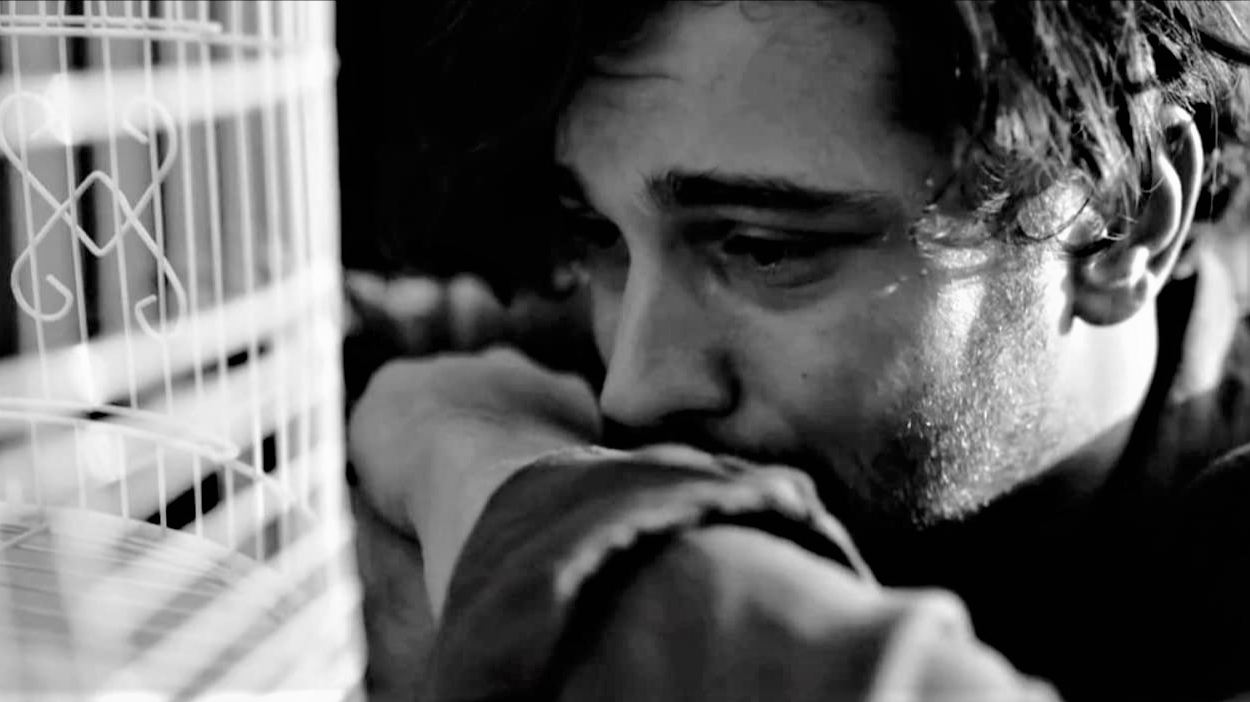|
A spoiler-free review of the movie by mh musings. First appeared here If you are looking for a meaningful love story that provokes soul-searching questions, Turkish movie Delibal fits the bill.
Delibal (2015) is one of the first full-length movie productions by Ay Yapim, one of today’s premier production houses in Turkey. With evocative performances by Cagatay Ulusoy (Baris), Leyla Lydia Tugutlu (Fusun), Mustafa Avkiran (Hayri) among others, it is a beautiful movie that explores themes of love versus ambitions, sacrifice versus responsibility, denial versus acceptance, and so much more. It is one of the most successful productions by Ay Yapim in terms of revenues per week during its 11-week run in multiple markets, and still has a growing global fan base as English subtitled versions have become available through multiple sources. DELI BAL: THE ESSENCE ‘Delibal’ is a type of honey which can be toxic for human consumption but often used for medicinal purposes. The specific species of rhododendron flowers from which bees make this honey has a toxic essence, and the ‘mad honey (deli bal)’ the bees produce has been used as an aphrodisiac, a drug or even a weapon of war. It can be fatal for people if taken in large doses. Northern Turkey is known to produce this nectar in its purest form, and taking it in small doses is part of the local tradition. Nectar of Rhododendron ponticum or the Rhododendron luteum which contain grayanotoxin and consumed as folk medicine The name is perfect for this movie because, in addition to using it as Fusun’s nickname for her crazy Baris, on multiple dimensions it also prods the theme of how too much of anything can be detrimental to our growth in life, and how it can push us towards making choices that are less than ideal.  THE PLOT The opening scene shows a despondent Baris on the edge of a cliff, as he breathes in the life around him, his eyes full of pain and sadness. It segues into his wife being unaware of his whereabouts and searching for him frantically. Within the desperation of the family’s wait for any news of Baris, we get glimpses of the past to understand how Baris and Fusun came to be. Some years prior, Baris is a happy-go-lucky, brilliant student of architecture who is born into a life of privilege. His career path is destined to step into his father’s shoes at the family design firm while he barely manages to keep on top of his deliverables at school during his graduation year. He is a musician at heart and plays the drums with bands at a nightclub. Rather hyper in his demeanor, and embellished with many tattoos that embodies his free spirit, Baris elicits a smile from everyone and seems to have an open, loving relationship with his parents. One afternoon, he sees Fusun at a coffee shop on campus and falls in love with her at first sight. Fusun comes from a middle-class family with the burden of all her father’s failed life ambitions on her shoulders. He is incredibly judicious over her career choices and wants for her to go to America on a full scholarship. Her elder sister had eloped at a young age and is now back at home with not much of a career and the father makes it very clear what he considers to be disappointments and unworthy of attention. Her mild-mannered mother often gets harshly silenced when she tries to be supportive of the girls’ emotional growth.  Since their first chance meeting, Baris is convinced that there can never be anyone else for him and he goes to great lengths to find Fusun, who has no interest in pursuing a relationship at this time. Baris finally wears her down with his child-like innocence and exuberance, and they enter into a relationship that remains well hidden from Fusun’s father. As they weather misunderstandings that create conflict for Fusun in her career goals and how she perceives their relationship as a distraction, we also see Baris go through deep emotional ups and downs through their various predicaments. Baris is portrayed as an intense personality who processes his universe at a level at odds with Fusun’s practicality, and they choose to part ways. After the sudden death of Fusun’s mother, who always counseled her to listen to her heart, Fusun begins to value her relationship with Baris differently, and they decide to get married against her father’s wishes. Over time, Baris wins him over and Hayri comes to love Baris as his own son. Sometime in the recent past, unbeknownst to Fusun, Baris’ episodes of manic depression intensify and he receives a diagnosis of bipolar disorder that he doesn’t share with her. It is unclear whether he and his parents knew of this diagnosis before the marriage, but the family had prior awareness of Baris’ episodes of extreme mood swings. On doctor’s suggestions, Baris starts to take medications that adversely affect his moods, making him feel less connected with life, and he begins to struggle with his quality of life and the kind of love he wishes to live with Fusun. He makes the choice to stop medication, and it has its own effects on their life and security. Caught between his desire to love Fusun for the rest of time and his propensity to endanger their lives, Baris makes a singular and difficult choice about their future, which has lasting effects on everyone involved. TOO MUCH OF ANYTHING The movie, directed by experienced director Ali Bilgin, is intelligent in how the strains interweave with each other and leave us with life-changing questions of “what would we have done?” There is the family dynamic within Fusun’s family, where a domineering father is driven by what he thinks is a successful life path for his children, forcing them to adhere to his standards. There is the other extreme of indulgent parenting from Baris’ parents who do not hold Baris strictly accountable on even basic academic requirements. They are socially connected, appreciate Baris’ brilliance as a designer and know that Baris can build a choice career at his family firm.  Whereas Hayri micro-manages his daughter’s life and wants to make sure she is not wasting her time on anything that does not build her career, Tarik (Baris’ father) provides for a bungalow on one of the islands where Baris can go and be by himself when he wants. As the youngsters navigate their economic and social differences, the story primarily focuses on their love as they overcome one obstacle after another, and how their individual decisions affect the course of their lives. Sometimes, too much of unfiltered, self-sacrificing love may also be more than what is required to build meaningful balance in life and, in fact, can lead to toxic results. Much like Delibal. INTERESTING DETAIL In the movie, Cagatay’s character sports 11 tattoos, which were all stick ons. One of them is the wing of a butterfly on his right hand, and Leyla’s character gets a matching one on her left hand, so that the two together can make one. This leads to one of most iconic posters for the movie. Over the centuries and across cultures, butterflies have been a symbol for transformations, joy, and sometimes even for the soul. In the movie’s context, it shows the transformations the characters go through for their love, and how complete they can be in their unison, but when they are not holding their hands, they become only a half of a complete being. This artistic detail is used effectively to portray not only the depth of their love for each other, but also the differences in their inner strength when it comes to accepting life’s pain. PERFORMANCES Cagatay Ulusoy Acting in his second movie but his first as the lead protagonist, Cagatay Ulusoy’s performance as Baris Ayaz received high praise for being soulful and nuanced, leaving many in tears at the end of the movie’s first screening. Fresh off his success as Yaman Koper in the teen favorite Medcezir, Cagatay spent six months preparing for his role as Baris. He lost more than 15 pounds, grew out his hair and beard, took drumming and motorcycling lessons, and also spent significant time with individuals living with bipolar disorder. The result is a lithe body of a young man who is used to being in motion, who is passionate about life and love, and just as much as he can be exuberant, he can also be very still when tormented by his thoughts. One of his poignant moments come in the latter part of the show, where he cries at his brokenness and ineptitude after he absent-mindedly leaves their pet bird out in the sun for the whole day and it results in the bird’s death. His heart-felt despair captures all the anguish of a young man who has lost his hope for a life that does not get over-shadowed by his disease. In addition to his acting chops, Cagatay also lent his voice to the principal song for the movie, Mutlu Sonsuz, which has lyrics by Sezen Aksu, a famous Turkish pop singer, songwriter and producer with more than 40 millions albums sold worldwide. Cagatay’s rendition of the song climbed to the top of the charts around the time of the movie’s release. If there was ever any doubt about Cagatay’s abilities of being more than a ‘handsome face’, he squarely convinced any critic with this role, which Cagatay also calls his ‘turning point’ as an actor. Leyla Lydia Tugutlu An experienced and expressive actress, Leyla fully personifies a young girl who wants to please her father, but who also learns to honor her love. She is affectionate, kind, controlled but cannot help falling in love with Baris in spite of herself, as she learns to take chances with her pre-planned life. At the deft hands of the storytellers Hasan Telli, Siyah Kalem and director Ali Bilgin, who was fresh off his success with Cagatay in Medcezir, the two young actors do very well together to portray the promise of their young love, through their affection, desire to experience life, and devotion towards each other. At a little less than two hours, Delibal is a well-structured story that moves at a decent pace. It has the Turkish flair of gradually unpeeling the layers of a narrative, while the human emotions come to the fore and touch the viewer’s soul. If you have never watched the actors before, you will enjoy their youthful love with unexpected turns and, if you watched them before, you will appreciate their subtle portrayal of well-defined characters. For those of you wondering if it’s still worth a watch, here is a trailer for the movie: Article (c) North America TEN, CUNA & mh musings
To access our library of interviews, BTS clips & more on Delibal, go here All video clips and photos belong to their respective owners. No copyright infringement is intended. Please ask for permission before reprints. For more on Cagatay Ulusoy, find the social media platforms for Cagatay Ulusoy North America. Here is the Link Tree: https://linktr.ee/CagatayNorthAmerica
0 Comments
Leave a Reply. |
Archives
February 2022
Categories
All
|
CAGATAY ULUSOY NORTH AMERICA








 RSS Feed
RSS Feed
